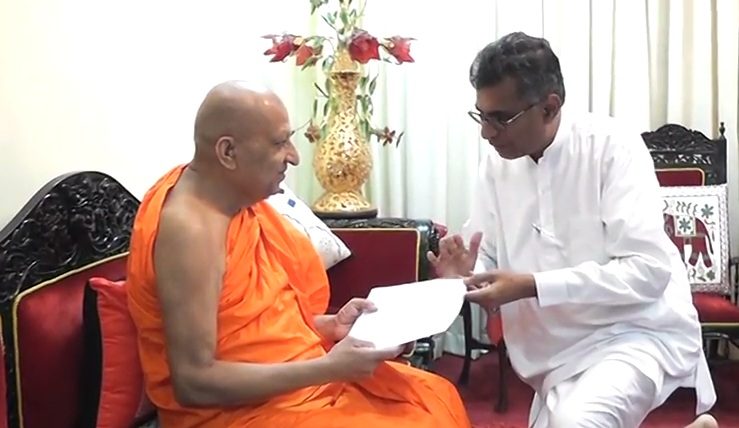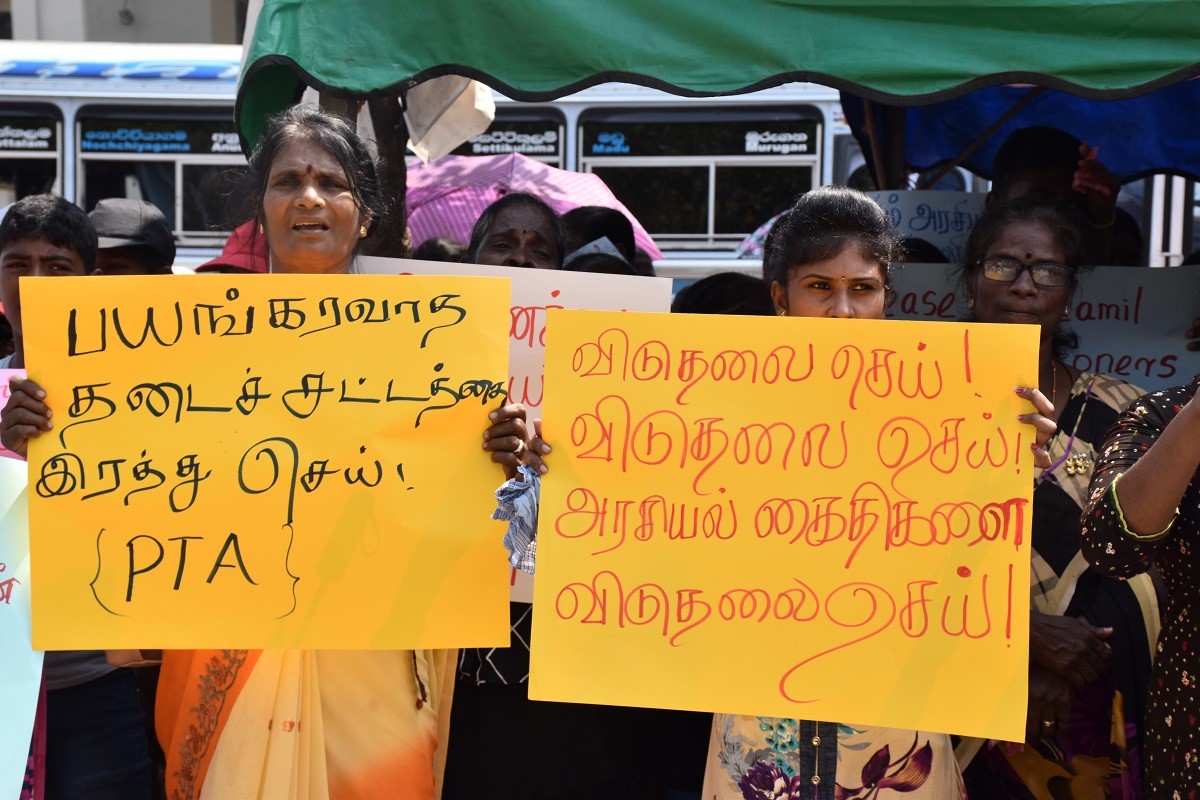Sri Lankan minister briefs Buddhist monks on draft constitution

A Sri Lankan government minister met with a senior Buddhist monk today, to brief the clergy on the process to draft a new constitution for the island.
Tamil News
Latest news from and about the homeland
